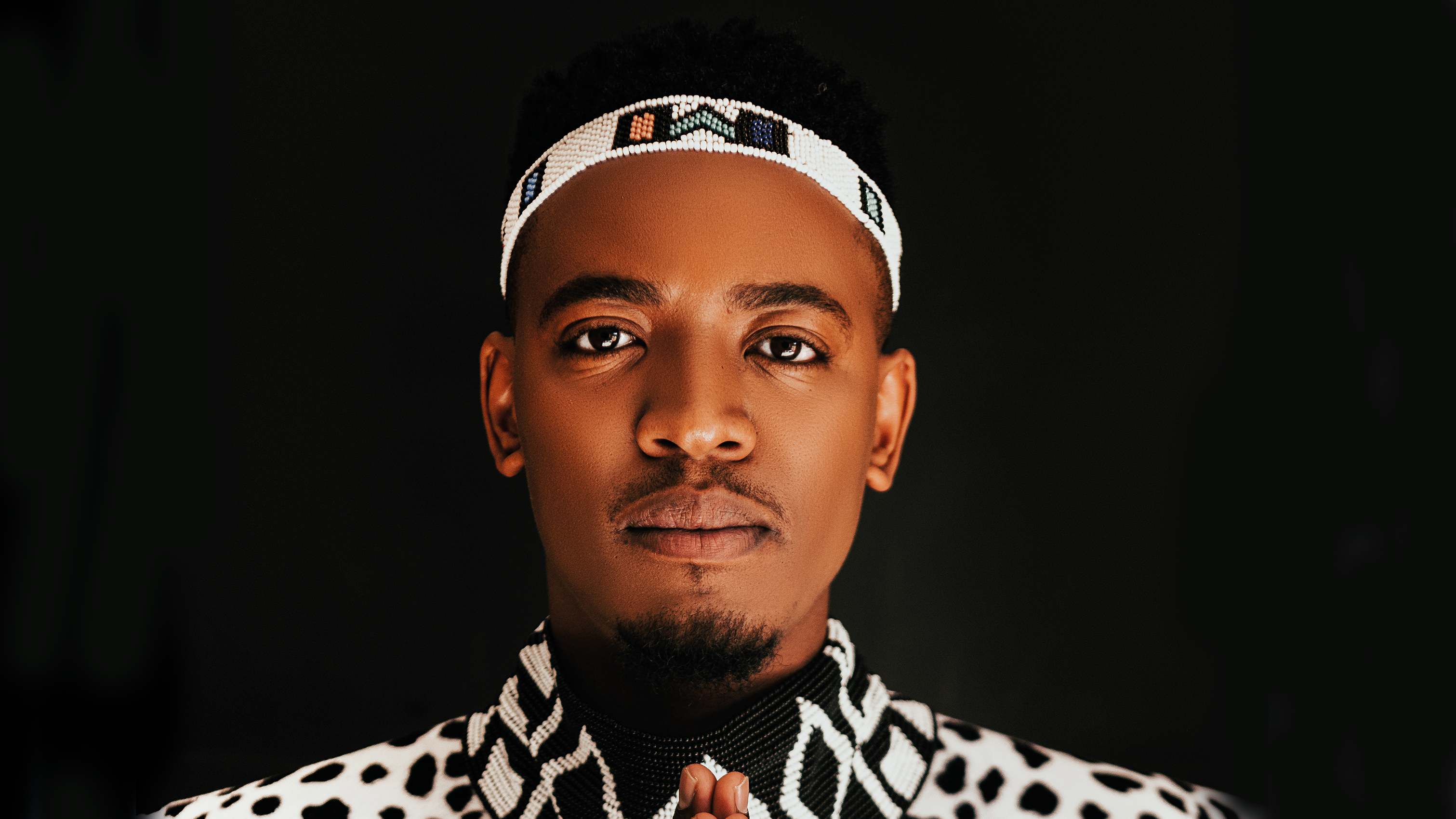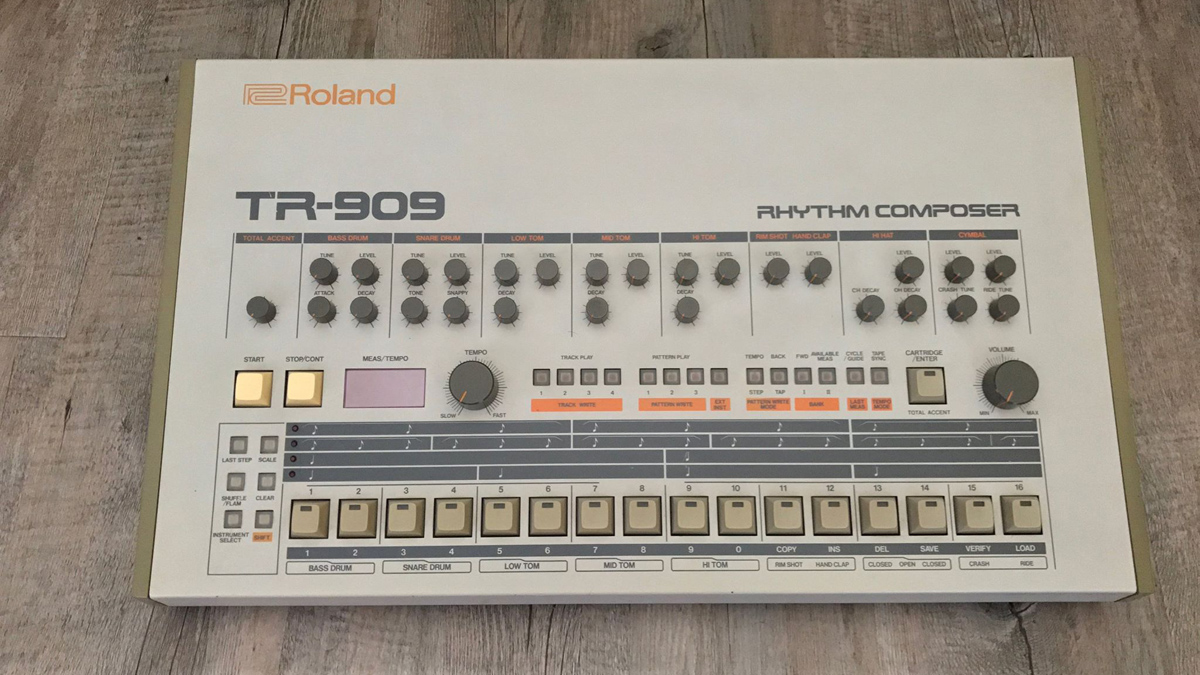Sun-El Musician: "I don’t come from an analogue background, it has always been about computers from the word go"
This South African producer is on a mission to spread his brand of EDM across the world, even inventing a subgenre along the way – African Electronic Dance Music

With his latest album AEDM (African Electronic Dance Music), South African DJ and producer Sun-El Musician is on a mission to unite African sounds with global phenomenon that is EDM and help introduce some of his local sounds and vibes – and himself – to the world along the way.
Already a huge artist on his home soil, he collaborated with Black Coffee and landed a double-platinum debut album for Africa To The World and went on to be nominated for three major South African Music Awards. All this from producing with just a smattering of hardware – mic, monitors, interface and Mac – and a diverse set of plugins. Well, who needs more than that these days…
Tell us how you got into music.
“My name is Sanele Sithole aka Sun-El Musician, born in a small town called Mooi River (Midlands) KwaZulu Natal, South Africa. I’m an electronic DJ/producer, singer, songwriter and entrepreneur.
"The how and why? I was a student at the University of Kwazulu-Natal majoring in electronics and science. Being unsatisfied with how far away this decision had taken me from the music, my attention began to veer more towards the campus parties where I could immerse myself in the world I knew could only last a few hours, before I’d have to return to living by the book.
I have a very basic setup; I’m not one to have crazy things and just like my studio to be simple
"I saw the likes of DJ Tira, DJ Bongz and DJ Cindo among other DJs from Durban and that was the thing that made me realise that this is something that I want to do: to make people dance and feel good, and just make good music for people.
“After months of discontent I then decided to return home to spend time teaching myself how to produce music, with Africanism, Daft Punk, Atjazz, Calvin Harris and Charles Webster as my sonic guides. I then started gaining momentum in my home town and handing out my music to whoever would care to have a listen.
Get the MusicRadar Newsletter
Want all the hottest music and gear news, reviews, deals, features and more, direct to your inbox? Sign up here.
"The support grew unexpectedly and then people started to encourage me into making a DVD disc containing over 200 self-produced songs to Demor Music. Upon my arrival at Johannesburg I got to work with the likes of Bucie and that’s where I learnt a lot about production and then eventually I started my own thing with my current team, El World Music, and the rest, they say, is history.”
How did you get successful?
“Success means different things to different people. For me it was when I realised I was making music that resonated with people so that was more of a determining factor. When I started making a living of music was with my first single Akanamali, because a lot of gigs were then coming in.”
What is your production philosophy?
“Let your music be based on feeling and try not to be fixated on what you want to compose. You should just let it sort of lead you instead of trying to control it.”
When did you discover the computer music route to music production?
“Maybe about 15 years ago when I was with my younger brother. We started by doing mix matches where we just used house music instrumentals with RnB songs where we would try to mix and match those. Since I don’t come from an analogue background, it has always been about computers from the word go.
"It’s always been a thing for me ‘cause I’m fascinated by electronics so it was just very easy for me to get into it. It’s the flow of it, like everything is easy to save, unlike the analogue days where it was complex and time consuming because you had to render each file. Using a computer system just made more sense to me.”
Tell us about the gear in your studio.
“I have a very basic setup; I’m not one to have crazy things and just like my studio to be simple. So I have a 22’ Apple iMac with a controller keyboard, Focusrite interface, Adam A7X monitors and an AKG studio mic.”
What are your favourite plugins?
“Spectrasonics Trilogy – For my bass synths, it has crazy forms of variations. reFX Nexus – I love using this on my piano or instrumental hooks for my dance sections in my songs. Rob Papen Albino – I use this for my pads, which I love to be so warm and it’s nice to control with the cutoff to open and close. Sonata – I use this for my chords; it has different sounds and it’s very unique. u-he Hive – I use this for my lead synths.”
I use samples to guide me while I play keys on top, so I always work around the sample
How do you tend to start a track?
“I have so many ways. Sometimes it could start with a melody, from me playing the piano just finding an emotion, or I just look for a sample that I would probably reverse and chop it up for it to make sense melodically, or I could start it off with drums. There is usually no specific structure but those are some of the main processes.”
How do you know when a track’s done?
“I don’t think you can ever finish a track! I feel there is always room to improve or to chop more parts off. Then it’s just about the people around you. I usually invite friends over or send it to the people I work with. If it’s a collaboration I would pass it on to them just to see how they feel about it and if they are happy, then yeah! But with me, I’m never happy because I always feel I can do better.”
Do you have any production tricks?
“Using a sample to guide me while I play keys on top of it, so I always work around the sample, whether it be enhancing it or playing more musical hooks on top of it.
What’s on your gear wishlist?
“I’m still in the learning phase but want to get some more gear, maybe a hardware rack with reverbs, delays and compressors.”
Which historic track do you wish that you’d produced?
“I’d say Daft Punk’s Around The World because it feels like it’s very simple. The elements used are very minimal yet very impactful. I like simplicity.”
What advice do you have for playing out live or DJing?
“Firstly you need to plan your sets and how you are going to present your music. Never go with the previous DJ’s mood or the way they presented or the type of songs they played. Make sure you are able to tell your own story.”
And studio advice?
“Allow your feelings to guide you and your gut feeling to lead you. Be experimental and always try new ways of doing things.”
Any more general advice?
“Get some background knowledge on the music business, because it’s important to understand that side of things.”
What do you have planned?
“I‘m exploring other parts of music, expanding my fanbase, and doing more collaborative work in different parts of the world. Maybe one day I’ll make a movie about my journey. Who knows? But for sure I’ll be making more music.”
Sun-El Musician’s African Electronic Dance Music is out now.


Computer Music magazine is the world’s best selling publication dedicated solely to making great music with your Mac or PC computer. Each issue it brings its lucky readers the best in cutting-edge tutorials, need-to-know, expert software reviews and even all the tools you actually need to make great music today, courtesy of our legendary CM Plugin Suite.











